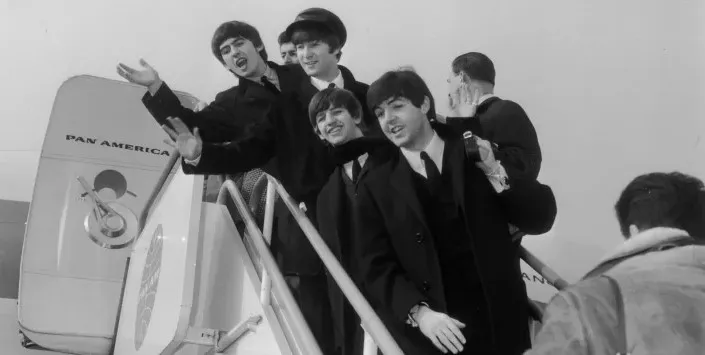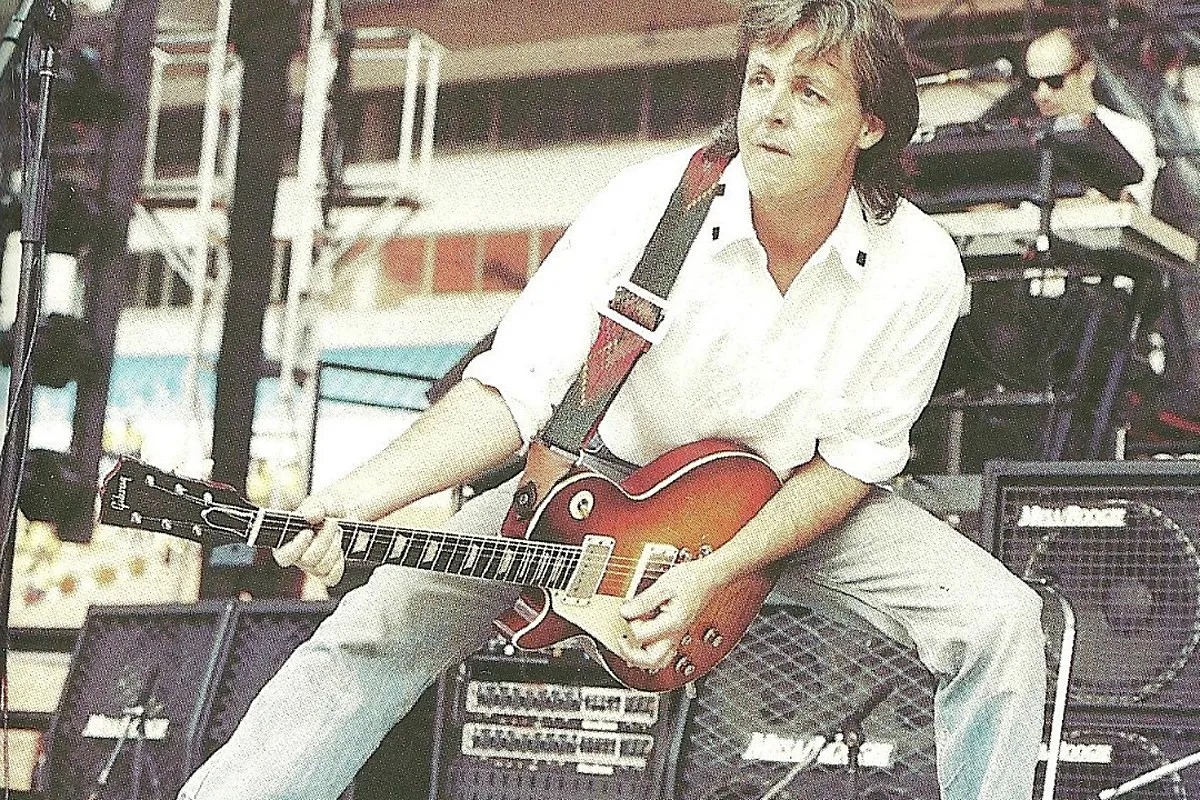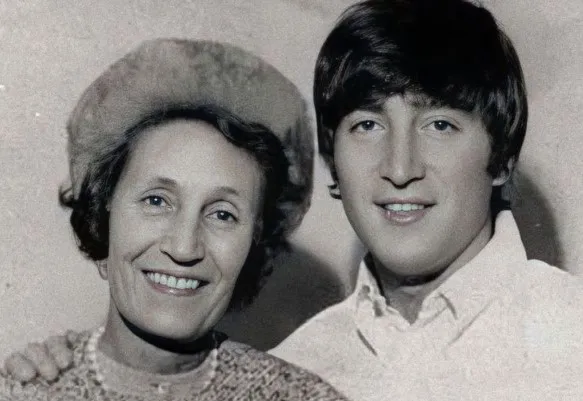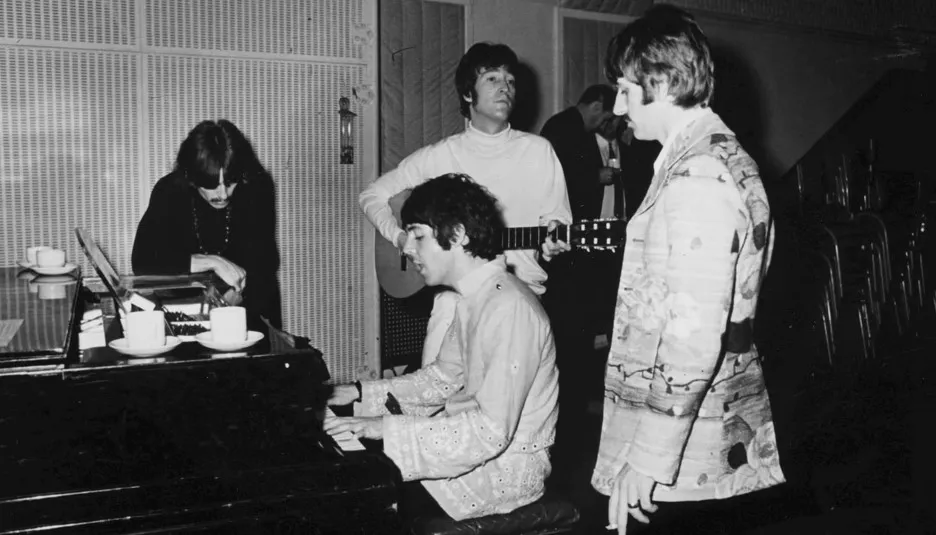Joe Cocker, a name synonymous with soulful, gritty rock and blues, is often celebrated for his powerful voice and dynamic stage presence. Yet, behind his iconic covers and passionate performances lies a rich history of collaboration with some of the most talented musicians of his time. One of the key figures in this collaborative journey was Chris Stainton, a frequent songwriting partner and integral member of several Joe Cocker bands. Among their many collaborations, the song "That's Your Business Now" stands out as a testament to their creative synergy.
The Formation of Joe Cocker’s Bands

Joe Cocker’s career began in the working-class neighborhoods of Sheffield, England, where he was born in 1944. His early years were marked by a deep love for American rhythm and blues, which would later influence his musical style. Cocker's first band, the Cavaliers, formed in the early 1960s, provided him with his initial foray into the world of live performance, although the group saw little commercial success.
It wasn't until the formation of his next band, Vance Arnold and the Avengers, that Cocker began to gain some recognition. The group, which mainly played in local clubs, helped Cocker hone his craft as a performer. However, it was his association with the Grease Band in the late 1960s that truly set the stage for his rise to fame.
The Grease Band: Joe Cocker’s Early Success
The Grease Band was formed in 1966 and became Joe Cocker’s backing band during his early solo career. This group, which included Chris Stainton on keyboards, was instrumental in defining Cocker’s sound during his breakthrough years. The band's tight, bluesy instrumentation provided the perfect backdrop for Cocker’s raw, emotional vocal style.
The Grease Band's contribution to Cocker's success cannot be overstated. Their collaboration resulted in several iconic recordings, including Cocker's famous cover of The Beatles' "With a Little Help from My Friends," which became a massive hit in 1968. The Grease Band's ability to blend rock, blues, and soul into a cohesive sound made them a perfect match for Cocker’s unique voice.
Chris Stainton: The Creative Force Behind the Music

Chris Stainton, a multi-instrumentalist with a deep understanding of blues and rock, became one of Joe Cocker’s most trusted musical partners. Stainton's versatility as a musician allowed him to contribute significantly to the sound of Cocker’s bands. Whether playing the piano, organ, or guitar, Stainton’s musical instincts were always in sync with Cocker’s vocal delivery.
Stainton’s role extended beyond that of a mere band member; he was also a key collaborator in the songwriting process. The partnership between Cocker and Stainton resulted in several original compositions, with "That's Your Business Now" being one of their notable co-writes. This song, while not as widely known as Cocker’s covers, showcases the creative chemistry between the two musicians.
"That's Your Business Now": A Deep Dive
The song "That's Your Business Now" is a prime example of Joe Cocker and Chris Stainton’s collaborative efforts. Written during a period when Cocker was exploring new musical directions, the track reflects the themes of personal reflection and resilience that were often present in Cocker's music.
"That's Your Business Now" features a bluesy groove, with Stainton’s keyboards laying down a soulful foundation for Cocker’s gritty vocals. The lyrics, which speak to the idea of taking control of one’s life and destiny, resonate with Cocker’s own experiences as an artist trying to navigate the ups and downs of the music industry.
The song’s structure, with its call-and-response verses and powerful choruses, highlights the seamless integration of Cocker’s vocal prowess and Stainton’s instrumental expertise. While it may not have achieved the same level of commercial success as some of Cocker’s other works, "That's Your Business Now" remains a testament to the enduring partnership between these two musicians.
The Mad Dogs & Englishmen Tour: A Musical Extravaganza

One of the most famous chapters in Joe Cocker’s career was the "Mad Dogs & Englishmen" tour in 1970. This tour, which included over 30 musicians, was a chaotic yet brilliant showcase of Cocker’s talent and the collaborative spirit that defined his music. Chris Stainton was a key figure in this ensemble, contributing not only as a musician but also as a musical director.
The "Mad Dogs & Englishmen" tour was a turning point for Cocker. The live album and concert film that resulted from the tour captured the raw energy and spontaneity of the performances. Stainton’s role in organizing and directing the band was crucial to the tour’s success, and his musical arrangements played a significant role in shaping the sound of the performances.
The tour also solidified the bond between Cocker and Stainton, further cementing their partnership as one of the most productive collaborations in rock history. The chaotic nature of the tour, with its constant lineup changes and hectic schedule, showcased Cocker’s ability to lead a large ensemble while maintaining his unique sound.
The Chris Stainton Band: A New Chapter
After the "Mad Dogs & Englishmen" tour, Joe Cocker and Chris Stainton continued their collaboration with the formation of the Chris Stainton Band in the early 1970s. This band marked a new phase in Cocker’s career, allowing him to explore different musical styles while staying true to his blues and rock roots.
The Chris Stainton Band provided Cocker with the creative freedom to experiment with new sounds and songwriting techniques. While the band did not achieve the same level of commercial success as Cocker’s earlier projects, it allowed him to refine his craft and continue evolving as an artist. Stainton’s influence was evident in the band’s sound, with his keyboards often serving as the driving force behind the music.
Joe Cocker’s Later Years: A Legacy of Collaboration

As Joe Cocker’s career progressed, his collaborations with various bands and musicians continued to shape his music. Whether working with established artists like Eric Clapton or nurturing young talent, Cocker’s ability to connect with other musicians remained a hallmark of his career.
Chris Stainton remained a constant presence in Cocker’s life, contributing to several of his later albums and live performances. Their partnership, which began in the late 1960s, endured for decades, resulting in a body of work that stands as a testament to their mutual respect and creative synergy.
Cocker’s later albums, such as "Sheffield Steel" and "Night Calls," featured contributions from a range of talented musicians, but Stainton’s presence was always felt. The musical bond between Cocker and Stainton was one of the defining elements of Cocker’s sound, and it played a significant role in shaping his legacy as one of rock’s most distinctive voices.
The Enduring Impact of Joe Cocker’s Bands
Joe Cocker’s career was marked by his collaborations with some of the most talented musicians of his time. His bands, particularly those involving Chris Stainton, were instrumental in shaping his sound and helping him achieve lasting success. The song "That's Your Business Now" is a reflection of the creative partnership between Cocker and Stainton, showcasing their ability to craft original music that resonates with listeners.
While Joe Cocker is often remembered for his powerful covers of other artists’ songs, his contributions as a songwriter and collaborator are equally important to his legacy. The bands he worked with, from the Grease Band to the Chris Stainton Band, played a crucial role in defining his sound and ensuring that his music would stand the test of time.
In the end, Joe Cocker’s genius lay not only in his voice but also in his ability to bring together talented musicians and create something greater than the sum of its parts. His bands were an integral part of his success, and their contributions to his music cannot be overstated. As we remember Joe Cocker, we also celebrate the musicians who helped him along the way, ensuring that his legacy continues to inspire future generations of artists.



